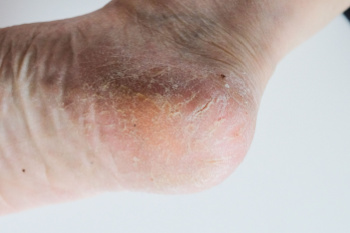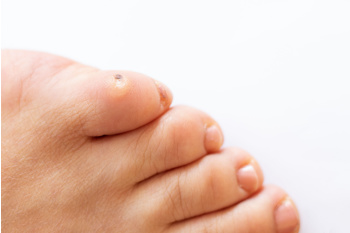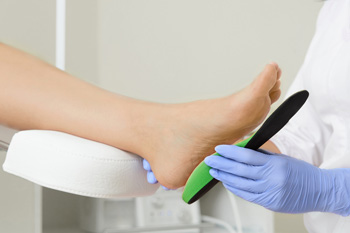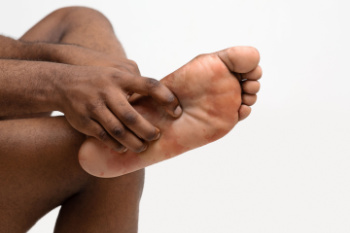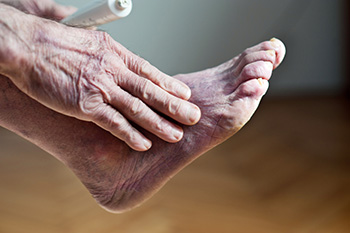 Poor circulation can cause various signs and symptoms that suggest a problem with blood flow. Some of the most common symptoms include cold or numb feet and toes, which can make the feel unusually cold to the touch. You might also experience tingling or a “pins and needles” sensation. Additional symptoms of poor circulation include swelling in the lower legs and feet, as well as changes in skin color, such as turning pale or blue. Poor circulation can contribute to cramping or pain in your legs and feet, especially after physical activity. One common cause of poor circulation is atherosclerosis, where fatty deposits build up in your arteries, narrowing them and restricting blood flow. Symptoms may include chest pain, shortness of breath, and fatigue, usually while participating in physical activity. Regular check-ups and a healthy lifestyle can help manage and prevent atherosclerosis. If you notice any of these symptoms of poor circulation in the feet, it's suggested that you consult with a podiatrist to address the issue.
Poor circulation can cause various signs and symptoms that suggest a problem with blood flow. Some of the most common symptoms include cold or numb feet and toes, which can make the feel unusually cold to the touch. You might also experience tingling or a “pins and needles” sensation. Additional symptoms of poor circulation include swelling in the lower legs and feet, as well as changes in skin color, such as turning pale or blue. Poor circulation can contribute to cramping or pain in your legs and feet, especially after physical activity. One common cause of poor circulation is atherosclerosis, where fatty deposits build up in your arteries, narrowing them and restricting blood flow. Symptoms may include chest pain, shortness of breath, and fatigue, usually while participating in physical activity. Regular check-ups and a healthy lifestyle can help manage and prevent atherosclerosis. If you notice any of these symptoms of poor circulation in the feet, it's suggested that you consult with a podiatrist to address the issue.
Poor circulation is a serious condition and needs immediate medical attention. If you have any concerns with poor circulation in your feet contact one of our podiatrists of Associates in Podiatry, PC. Our doctors will treat your foot and ankle needs.
Poor Circulation in the Feet
Poor blood circulation in the feet and legs is can be caused by peripheral artery disease (PAD), which is the result of a buildup of plaque in the arteries.
Plaque buildup or atherosclerosis results from excess calcium and cholesterol in the bloodstream. This can restrict the amount of blood which can flow through the arteries. Poor blood circulation in the feet and legs are sometimes caused by inflammation in the blood vessels, known as vasculitis.
Causes
Lack of oxygen and oxygen from poor blood circulation restricts muscle growth and development. It can also cause:
- Muscle pain, stiffness, or weakness
- Numbness or cramping in the legs
- Skin discoloration
- Slower nail & hair growth
- Erectile dysfunction
Those who have diabetes or smoke are at greatest risk for poor circulation, as are those who are over 50. If you have poor circulation in the feet and legs it may be caused by PAD and is important to make changes to your lifestyle in order to reduce risk of getting a heart attack or stroke. Exercise and maintaining a healthy lifestyle will dramatically improve conditions.
As always, see a podiatrist as he or she will assist in finding a regimen that suits you. A podiatrist can also prescribe you any needed medication.
If you have any questions please feel free to contact our offices located in Pittsburgh-South Hills, and Pittsburgh-Bellevue, PA . We offer the newest diagnostic and treatment technologies for all your foot and ankle needs.

